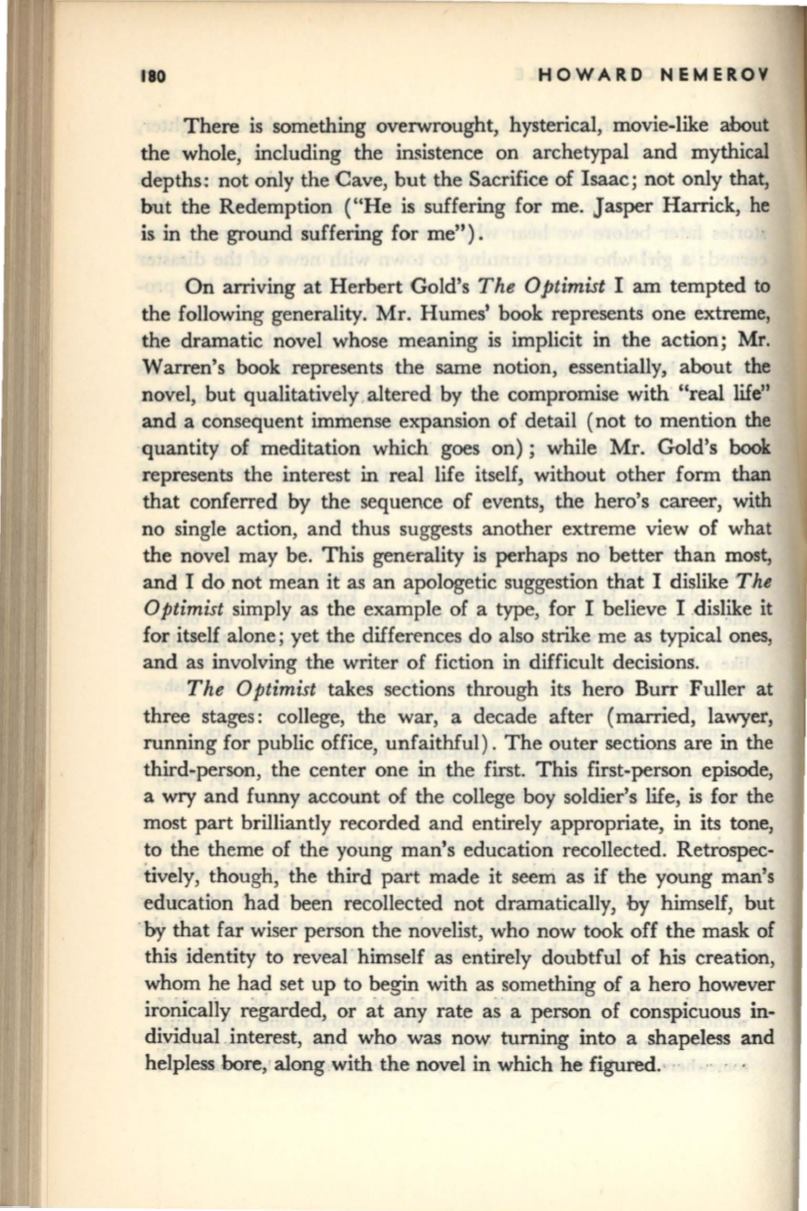
180
HOWARD NEMEROV
There is something ovelWrought, hysterical, movie-like about
the whole, including the insistence on archetypal and mythical
depths: not only the Cave, but the Sacrifice of Isaac; not only that,
but the Redemption ("He is suffering for me. Jasper Harrick, he
is in the ground suffering for me").
On arriving at Herbert Gold's
The Optimist
I am tempted to
the following generality. Mr. Humes' book represents one extreme,
the dramatic novel whose meaning is implicit in the action; Mr.
Warren's book represents the same notion, essentially, about the
novel, but qualitatively.altered by the compromise with "real life"
and a consequent immense expansion of detail (not to mention the
quantity of meditation which goes on); while Mr. Gold's book
represents the interest in real life itself, without other form than
that conferred by the sequence of events, the hero's career, with
no single action, and thus suggests another extreme view of what
the novel may be. This generality
is
perhaps no better than most,
and I do not mean it as an apologetic suggestion that I dislike
The
Optimist
simply as the example of a type, for I believe I dislike it
for itself alone; yet the differences do also strike me as typical ones,
and as involving the writer of fiction in difficult decisions.
The Optimist
takes sections through its hero Burr Fuller at
three stages: college, the war, a decade after (married, lawyer,
running for public office, unfaithful). The outer sections are in the
third-person, the center one in the first. This first-person episode,
a wry and funny account of the college boy soldier's life, is for the
most part brilliantly recorded and entirely appropriate, in its tone,
to the theme of the young man's education recollected. Retrospec–
tively, though, the third part made it seem as if the young man's
education had been recollected not dramatically, by himself, but
.by
that far wiser person the novelist, who now took off the mask of
this identity to reveal himself as entirely doubtful of his creation,
whom he had set up to begin with as something of a hero however
ironically regarded, or at any rate as a person of conspicuous in–
dividual .interest, and who was now turning into a shapeless and
helpless bore, along with the novel in which he figured. -


